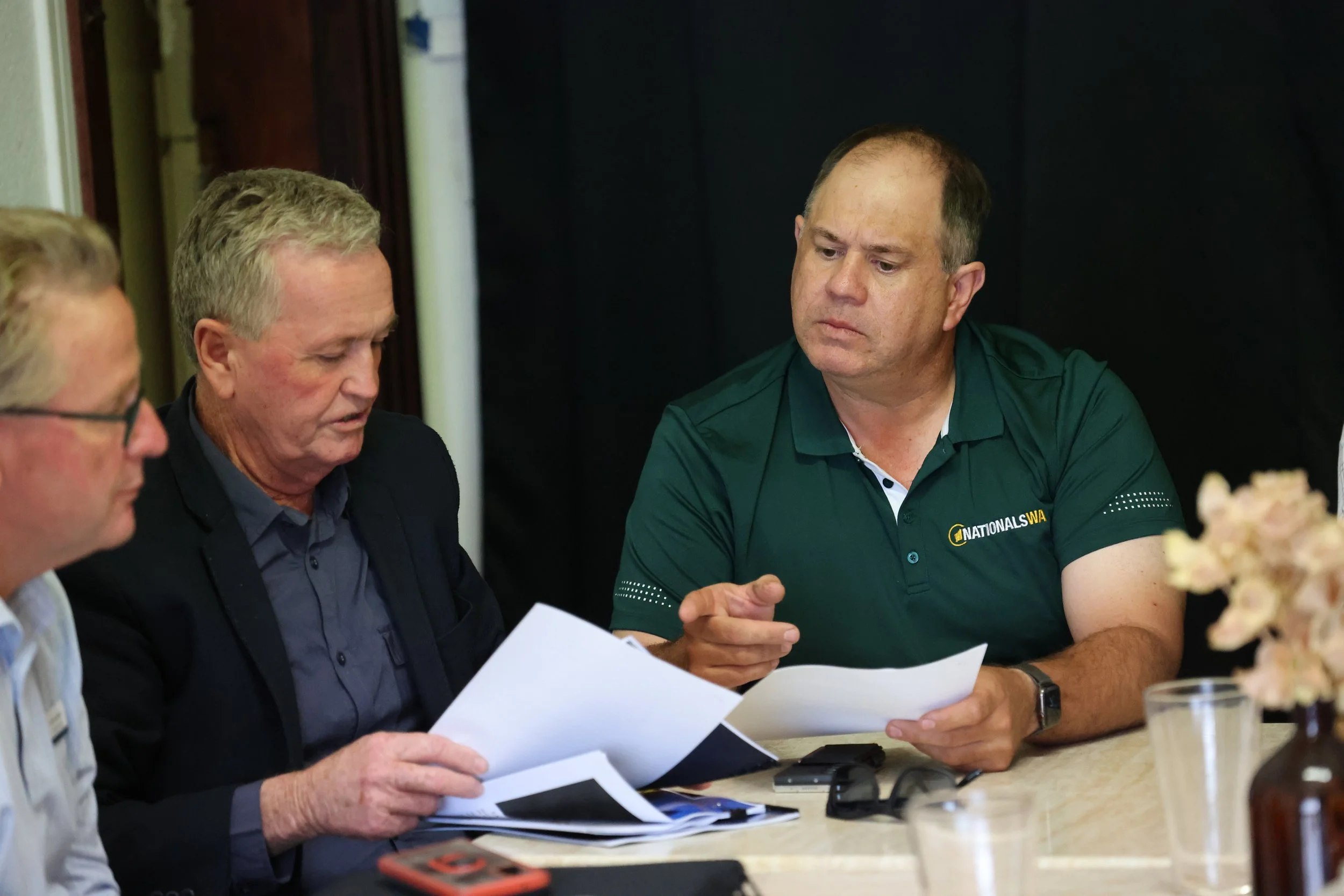
ADVOCACY GROUPS.
As your local Member, Bevan knows real change doesn’t happen in isolation. Community and advocacy groups are the backbone of our region — from volunteers and service providers to industry bodies and local campaigners.
Bevan’s role is to listen, connect, and give your concerns a voice in Parliament. But resources are limited, so working together in smart, structured ways ensures your issue gets the attention it deserves.
HOW WE CAN SUPPORT YOU.
Bevan advocating for funding for Community Resource Centres (CRCs)
When advocacy groups partner with Bevan’s office, we can:
Raise issues in Parliament – through speeches, debates, or direct questions to Ministers.
Seek answers and accountability – using formal tools like Questions on Notice.
Connect you with decision-makers – arranging meetings with Ministers, departments, or local government.
Amplify your voice – through media statements, newsletters, and social media (#BevanListens #CommunityFirst).
WORKING SMARTER WITH LIMITED RESOURCES.
Bevan’s office receives many requests for help. To make sure we can take your advocacy further:
Provide clear evidence: statistics, reports, or local examples.
Be specific with the ask: what action do you want the Minister or Government to take?
Suggest timing: is there an upcoming decision, review, or budget process?
Where possible, provide a draft Question on Notice or briefing note (see below).
This helps Bevan act quickly and effectively on your behalf. While we make every effort to submit Questions on Notice that come through the office, we reserve the right to determine which questions are appropriate for parliamentary submission.
What is a Question on Notice?
A Question on Notice (QON) is a formal parliamentary tool that allows Members to seek detailed information from Ministers.
The question is submitted in writing.
The Minister must provide a written answer, usually within a set timeframe.
Responses become part of the public record in Hansard, which means government agencies are accountable for the accuracy of their answers.
This is one of the most powerful tools advocacy groups can use through Bevan’s office to get real answers.
Why Questions on Notice Matter
A Question on Notice (QON) is a formal parliamentary tool that allows Members to seek detailed information from Ministers.
They force the Government to respond on the record.
They equip community groups with facts to strengthen campaigns.
They highlight gaps between promises and delivery.
They can spark media attention when important answers are revealed.
When drafting a QON, keep it:
Focused: Target one issue at a time.
Specific: Ask for facts, figures, or actions, not opinions.
Answerable: Ministers must be able to refer to data held by their department.
Example 1: Forestry
"How many hectares of native forest have been ecologically thinned under the current Forest Management Plan, and how does this compare to the annual target?"
Example 2: Regional Health
"How many aged care places are currently funded in Warren–Blackwood, and what is the current waitlist for high-care beds by town?"
Example 3: Infrastructure
"What is the total funding allocated in the 2025–26 State Budget for road upgrades in the Warren–Blackwood electorate?"
How to Write a Strong Question on Notice
BRIEFINGS ON LEGISLATION.
When new laws come before Parliament, it’s vital that they are properly reviewed and tested. As a member of the opposition, I am allocated two full-time staffers. These dedicated staff are responsible for everything from reading and reviewing legislation, speech writing, to handling community concerns across the entire electorate, managing social media, and supporting media work.
Because of these limited resources, we cannot research every issue in the depth it deserves. This is why the input of advocacy groups like yours is so valuable. You bring specialist knowledge, real-world experience, and a clear understanding of how legislation will affect the people you represent.
My role in Parliament is to hold the government accountable. When new legislation is introduced, I focus on three key questions:
Consultation – Were all stakeholders consulted in the process? Specifically, were advocacy groups like yours engaged? Was your feedback considered?
Impact – How many people in WA, represented by your organisation, would benefit or be affected by these changes?
Clarity – Are there particular clauses that need to be amended or explained more clearly? This becomes especially important during the Consideration in Detail stage – the clause-by-clause review.
Think of Consideration in Detail as the final safeguard. It’s where we can prevent poorly worded legislation – even if well-intentioned – from creating problems down the track.
Your insights and feedback make this process stronger. By working together, we can ensure laws are clear, practical, and in the best interests of our community.
If your organisation has expertise or concerns about a bill before Parliament, I encourage you to share your views with me. The earlier you can provide your input, the more effectively I can raise these issues during debate.
BUDGET SUBMISSIONS - LOOKING AHEAD.
Each year, government departments prepare their Budget submissions for the State Budget. Advocacy groups often send in their own proposals, outlining funding requests or policy initiatives.
To strengthen Warren–Blackwood’s case, Bevan is asking groups to:
Share a copy of any submissions or proposals you send to government.
Let us know the specific programs, projects, or funding requests you’ve made.
Flag if there are deadlines or decisions pending.
By having your submissions, Bevan can:
Ensure your priorities are reinforced in parliamentary questions and debates.
Reference them in correspondence with Ministers or agencies.
Track whether the government is responding to requests made by our local communities.
This means your advocacy doesn’t stand alone — it becomes part of a united regional voice.
GET IN TOUCH WITH US.
Community and advocacy groups are the backbone of our region — representing volunteers, service providers, industry bodies, and local campaigners. These groups deliver vital services, stand up for local needs, and help shape the future of our towns. But it’s clear that many are under growing strain. From stretched resources and volunteer burnout, to navigating government processes and securing fair funding, groups across the South West are asking whether enough support is reaching the grassroots.
Bevan is raising these concerns in Parliament — and he wants to hear directly from you. Whether your group provides essential services, drives local campaigns, or advocates for a cause close to your heart, your experience matters. What’s working well? Where are the biggest challenges? And what would truly make a difference — whether it’s recognition, resources, or government action? Share your insights below to help strengthen the case for fairer support and better outcomes for our community organisations.
"We believe strong communities are built on strong community groups — and they deserve the support they need to thrive." — Bevan Eatts
Lets work together



